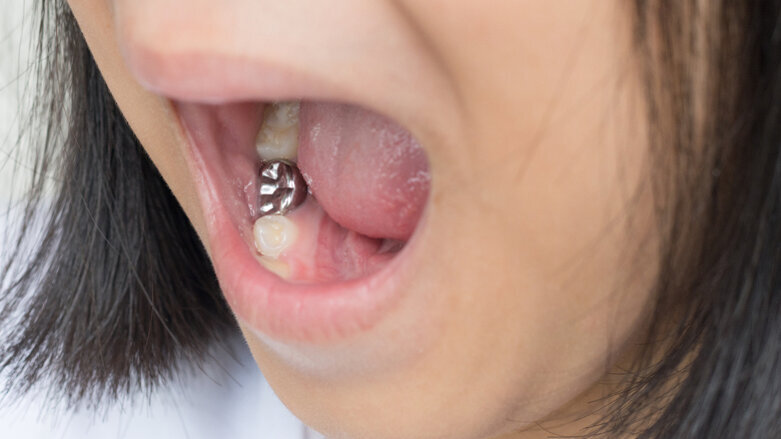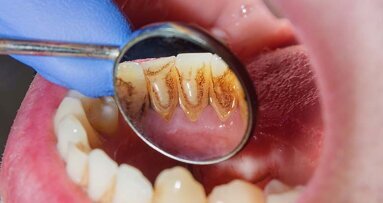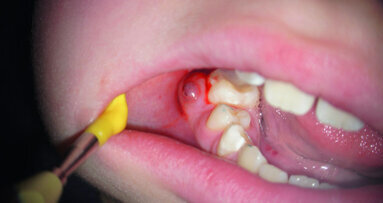WHANGANUI, New Zealand: Aiming to find a safer, more effective and faster treatment method to reduce the high prevalence of dental caries in children in New Zealand’s Whanganui district, a three-year study has set out to test an alternative method of treating caries, the Hall technique. The study has been underway since December 2015, and its provisional results have been promising, according to the lead researcher.
Instead of removing the diseased tissue under anaesthesia, in the Hall technique, dentists leave the decay as is and cement a small metal crown on the tooth. The crown then stays in the mouth until the affected primary tooth falls out. The method was first introduced in 1991 by Scottish dentist Dr Norna Hall, who used the treatment on her patients for 15 years until she retired.
Although the method has since gained favour internationally, it is still regarded as controversial. Some clinicians think the treatment is wrong because it leaves bacteria behind, explained lead researcher Dr Foster Page, who is an associate professor at the Department of Oral Sciences at the University of Otago. Therefore, the study is seeking sound results that prove the efficacy of the Hall technique so that it can be widely implemented as an alternative treatment option.
Highlighting the benefits of the method compared with the traditional approach of drilling and filling, Whanganui dental therapist Megan Thiele told the New Zealand Herald that the treatment does not require anaesthetic, takes 10 minutes instead of half an hour, means minimal pain for the child and does not have to be redone. One of the few drawbacks of the method, however, is its cost: a crown costs about NZ$10 (€6.07), whereas a filling costs about NZ$1 or NZ$2 (€0.50 or €1.21).
With an exceptionally high caries burden—43.1 per cent of 5-year-olds have the disease—the Whanganui district was chosen to be the first place in New Zealand for the trial on this alternative method of dental care. About 350 local children aged 3–8 are participating in the study. Half are being treated with standard fillings and the other half with the Hall technique.
So far, the results are proving promising, Page said. In December, the two-year data will be released to show which treatment proved more effective in each study group.
Tags:
SENDAI, Japan: Periodontitis affects many people and can have serious effects on oral health. In new research originating from Japan, scientists have ...
WASHINGTON, U.S.: Prevention is always the best place to start when talking about dental care; however, many patients would be thrilled to have access to an...
WASHINGTON, US: Covering everything, including composite fillings and disposable suction tips, plastics are woven into all aspects of modern dental care. ...
LONDON, England: In the Global North, HIV/Aids is often seen as a historic problem; however, as UNAIDS Executive Director Winnie Byanyima stressed in a new ...
What do endodontic experts base their decisions on: intuition, experience or CBCT imaging? The following case report on a 10-year-old patient shows that an ...
MALMÖ, Sweden: Although complication rates for zirconia restorations are low, technical problems like loss of retention are significant owing to the ...
STONY BROOK, N.Y., US: The applicability and efficacy of artificial intelligence (AI) within dentistry appears to be limitless. With each passing day, ...
MANGALORE, India: A key reason behind people not attending regular oral health check-ups can be anxiety stemming from their first experience in a dental ...
BUFFALO, N.Y., US: Research has shown that smoking cannabis can be detrimental to overall health and can have adverse effects on the lungs, heart and brain....
Kraków, Poland: Seamless and streamlined cooperation between dentists and dental technicians is a recipe for success. In Japanese, “kizuna” describes a...
Live webinar
Tue. 24 February 2026
1:00 pm EST (New York)
Prof. Dr. Markus B. Hürzeler
Live webinar
Tue. 24 February 2026
3:00 pm EST (New York)
Prof. Dr. Marcel A. Wainwright DDS, PhD
Live webinar
Wed. 25 February 2026
11:00 am EST (New York)
Prof. Dr. Daniel Edelhoff
Live webinar
Wed. 25 February 2026
1:00 pm EST (New York)
Live webinar
Wed. 25 February 2026
8:00 pm EST (New York)
Live webinar
Tue. 3 March 2026
11:00 am EST (New York)
Dr. Omar Lugo Cirujano Maxilofacial
Live webinar
Tue. 3 March 2026
8:00 pm EST (New York)
Dr. Vasiliki Maseli DDS, MS, EdM



 Austria / Österreich
Austria / Österreich
 Bosnia and Herzegovina / Босна и Херцеговина
Bosnia and Herzegovina / Босна и Херцеговина
 Bulgaria / България
Bulgaria / България
 Croatia / Hrvatska
Croatia / Hrvatska
 Czech Republic & Slovakia / Česká republika & Slovensko
Czech Republic & Slovakia / Česká republika & Slovensko
 France / France
France / France
 Germany / Deutschland
Germany / Deutschland
 Greece / ΕΛΛΑΔΑ
Greece / ΕΛΛΑΔΑ
 Hungary / Hungary
Hungary / Hungary
 Italy / Italia
Italy / Italia
 Netherlands / Nederland
Netherlands / Nederland
 Nordic / Nordic
Nordic / Nordic
 Poland / Polska
Poland / Polska
 Portugal / Portugal
Portugal / Portugal
 Romania & Moldova / România & Moldova
Romania & Moldova / România & Moldova
 Slovenia / Slovenija
Slovenia / Slovenija
 Serbia & Montenegro / Србија и Црна Гора
Serbia & Montenegro / Србија и Црна Гора
 Spain / España
Spain / España
 Switzerland / Schweiz
Switzerland / Schweiz
 Turkey / Türkiye
Turkey / Türkiye
 UK & Ireland / UK & Ireland
UK & Ireland / UK & Ireland
 Brazil / Brasil
Brazil / Brasil
 Canada / Canada
Canada / Canada
 Latin America / Latinoamérica
Latin America / Latinoamérica
 USA / USA
USA / USA
 China / 中国
China / 中国
 India / भारत गणराज्य
India / भारत गणराज्य
 Pakistan / Pākistān
Pakistan / Pākistān
 Vietnam / Việt Nam
Vietnam / Việt Nam
 ASEAN / ASEAN
ASEAN / ASEAN
 Israel / מְדִינַת יִשְׂרָאֵל
Israel / מְדִינַת יִשְׂרָאֵל
 Algeria, Morocco & Tunisia / الجزائر والمغرب وتونس
Algeria, Morocco & Tunisia / الجزائر والمغرب وتونس
 Middle East / Middle East
Middle East / Middle East












































To post a reply please login or register